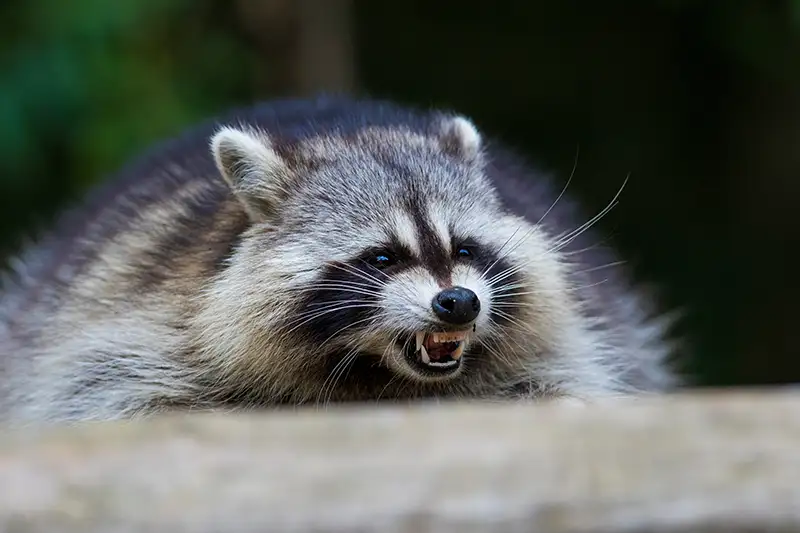Signs That a Raccoon Might Have Rabies
Serving Miami, Pompano Beach, and surrounding areas

When a raccoon is acting strangely on your property, it’s natural to ask yourself if it has rabies. Rabies is a deadly disease that can affect raccoons, other animals, and humans, creating a serious threat to your pets and family. It’s important to know how to spot the signs of a rabid raccoon. Let’s explore the key symptoms of rabies and what to do next.
What Are the Signs of a Rabid Raccoon?
Recognizing the symptoms of rabies in raccoons is vital for your property’s safety. Here’s what you should be aware of:
- Daytime Activity: Raccoons are typically nocturnal, so seeing one active during the day, especially with odd behavior, may indicate rabies.
- No Fear of Humans: A rabid raccoon may approach humans or other animals without fear, which is unusual since raccoons are generally shy.
- Excessive Drooling or Foaming at the Mouth: Foaming at the mouth is a well-known symptom of rabies and serves as a clear warning sign.
- Unusual Noises: A rabid raccoon may emit strange sounds, such as growls, snarls, or even high-pitched cries.
- Disorientation or Staggering: Rabies can impair the nervous system, leading raccoons to become disoriented or unsteady on their feet.
- Aggressive Behavior: A raccoon with rabies may display sudden, unprovoked aggression toward humans, pets, or other animals.
What Should You Do If You Find a Raccoon with Rabies?
If you come across a raccoon exhibiting strange or alarming behavior, it’s important to assess the situation carefully. While your first reaction may be to act, it’s essential to keep the following precautions in mind:
- Keep Your Distance: Avoid approaching or attempting to interact with the raccoon, as this could put you in serious danger.
- Safe Observation: If possible, observe the raccoon from a safe distance.
- Professional Help: Contact a professional wildlife control expert, such as the team at Petri Pest Control. Our trained specialists can manage the situation safely and efficiently, protecting your home and family.
How Dangerous Is a Raccoon with Rabies?
A rabid raccoon is a serious threat. The best course of action is to maintain a safe distance and ensure that pets and family members stay far away. If you’re bitten or scratched, the situation can quickly turn dangerous, as rabies is almost always fatal once symptoms appear. It’s important to stay calm and avoid panicking, as a calm approach will help you make better decisions at the moment. Avoid all contact with the animal, as rabid raccoons can act aggressively and unpredictably.
Start With A Quote On Us
Click below to contact Petri Pest Control for a FREE pest control quote.
What Should You Do If You Get Bitten By a Raccoon?
Being bitten or scratched by a raccoon requires swift action. Wash the wound well with soap and water to reduce infection chances, then seek medical attention immediately. Even if you’re uncertain about the raccoon’s rabies status, it’s best to err on the side of caution and get the rabies shots (post-exposure prophylaxis). Rabies can take months to show symptoms but is almost always fatal once it does. The virus stays dormant in your system while it moves toward your brain, so prompt treatment is crucial. Once you’ve cared for your health, reach out to wildlife control services to safely remove the animal.
Our Raccoon Control Experts Are Standing By
Rabies is a serious and life-threatening disease that must be treated with caution. Identifying the signs of a rabid raccoon is crucial to safeguarding your family, pets, and property. If you think a raccoon on your property could have rabies, contact our skilled raccoon control professionals without delay.
Protect your home from the dangers of rabid wildlife by calling Petri Pest Control today.
Back to Wildlife RemovalSigns That a Raccoon Might Have Rabies in Pompano Beach
Pest Control in Pompano Beach
